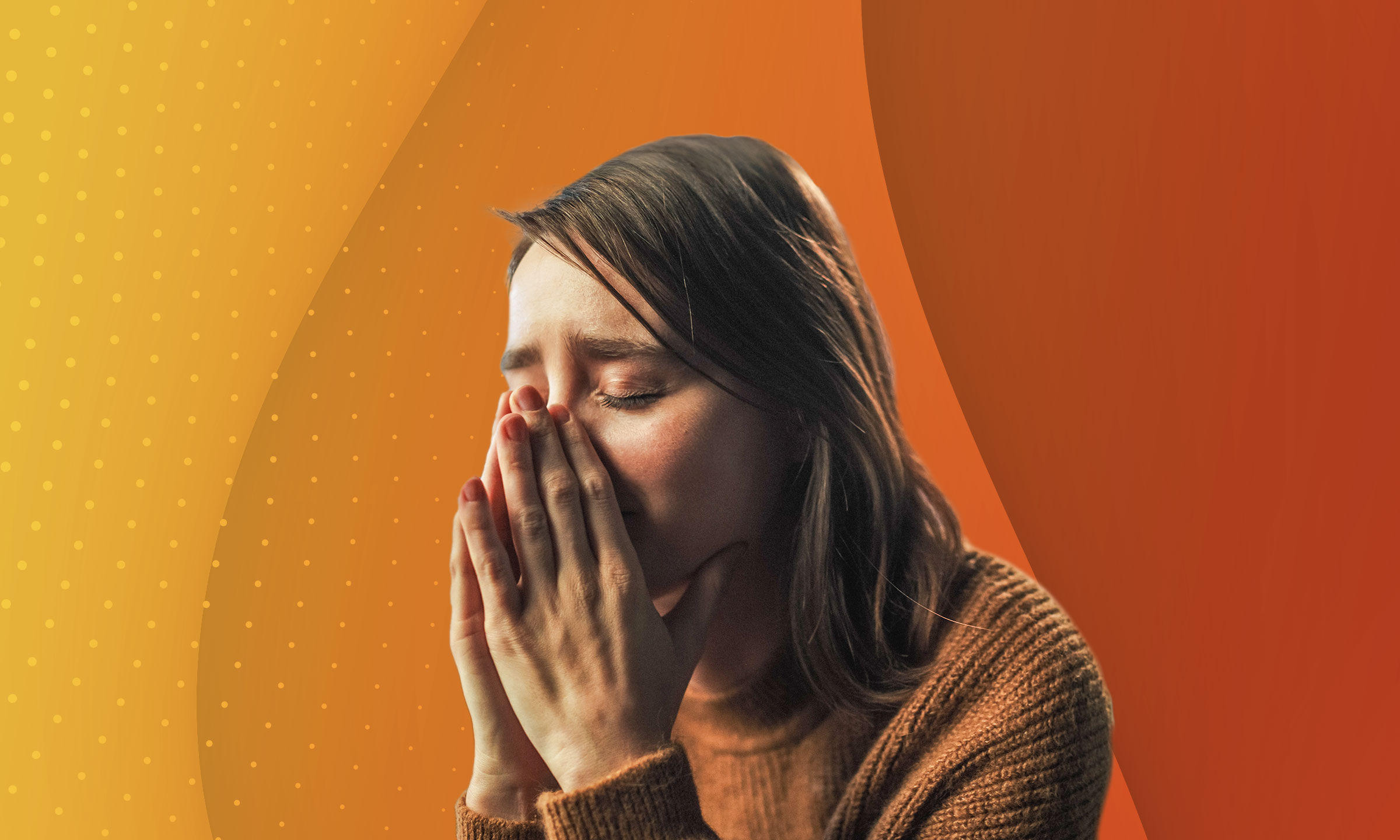Your heart races during a work presentation. Your stomach tightens when you check your bank statements. Your shoulders tense as you scroll through endless emails. At the end of the day, you feel burned out.
These familiar sensations share a common thread: stress, the body’s alarm system, struggling to cope with the unprecedented demands of modern life.
The good news is that understanding how stress works at different stages can help you recognize and manage it before it takes a toll.
Beneficial or Harmful
Stress can be caused by external factors, such as natural disasters, accidents, or emotional distress. Even perceived threats can trigger a strong stress response.
In 1936, endocrinologist Hans Selye discovered that when an organism was exposed to a stressor (stress trigger), changes occurred in its gut, hormones, and immune system. His view was that stress can be either beneficial and adaptive (termed “eustress”) or harmful (“distress”), with the latter potentially leading to pathologies.
The complex effects of stress on the body and mind are well-researched. Stress reduces people’s ability to learn and remember information, as the accumulation of excess cortisol (the stress hormone) increases activity in the brain’s fear region (amygdala) and causes fewer neural connections to be made. That’s the point where we feel like we can’t handle the pressure anymore. We may end up with brain fog, poor sleep, mood swings, anxiety, and more.
Selye’s theory highlighted that excessive stress occurs when the “demands placed on an organism exceed its reasonable capacity to fulfill them.” He found that our stress response—or how we handle the pressure we feel—develops in three stages.
The 3 Stages of Stress
The progression through the three stages of stress involves a complex cascade of physiological, psychological, and emotional transformations that manifest in our behaviors and symptoms, with transitions that can unfold across varied timescales—from fleeting hours to protracted months.
Not everyone experiences all three stages; it depends on how long you have been exposed to stress and how resilient you are.
Stage 1: Alarm
Selye referred to the first stage of stress as the “general alarm reaction.” It’s our immediate stress response when we perceive a situation as potentially threatening. You’ve probably already heard of this stage, also called the “fight-or-flight response.”
Think of it as your body’s emergency alert mode. Your brain triggers a cascade of survival responses, such as the release of hormones including adrenaline and cortisol, preparing your body for immediate action.
This is all because the nervous system is designed to help increase our chances of surviving a physical threat.
Symptoms of Stage 1 Stress
When you are alarmed by a request from your boss or a comment by a loved one, or you feel overloaded with tasks you need to get through before the end of the day, the body swiftly shifts into alarm. The stress response may express itself in any or all of the following ways.
Physical
- Increased heart rate, breathing rate, and blood pressure
- Muscle tension, particularly in the chest, neck, or shoulders
- Severely reduced digestion and reduced appetite
- Dilated pupils (to enhance vision to focus on threats)
- High blood sugar levels as the liver dumps stored glucose into the bloodstream
- Irritability and energy bursts, making sitting still difficult.
The logical, rational part of the brain becomes impaired, and we shift over to the limbic system, which controls instinctive and emotional behaviors that are quicker and more reflexive. That’s why thinking calmly and rationally is extremely difficult when you’re having a stress response. It is easy to become highly emotional and spit out words you later regret.
Mental
- Sharpened cognition and alertness due to increased catecholamines and glutamate in the brain
- Overthinking, racing mind that may cause sleeplessness
- Feelings ranging from anger, anxiety, and fear to sadness, where tears come easily.
When stress is short-term or short-lived, the alarm stage isn’t harmful. The higher hormone level during this stage gives you more energy and improves your focus to tackle the situation.
The longer a stress reaction lasts, the more harmful it is to your health, as you enter stage two.
Stage 2: Resistance
It is too difficult for the body to sustain a highly stimulated state over time. We may tend to notice only isolated changes, such as experiencing more headaches, without realizing they are caused by stress.
Often, people experiencing stress feel a great need to control the circumstances around them. For example, a formerly easygoing boss becomes a driving taskmaster, or a parent makes demands that no child could ever meet. Recognize these as what they are: a sign of resistance stress. On the surface, this stage may look more stable and less panicked than stage one, but it is actually deepening the problem.
Symptoms of Stage 2 Stress
Physical
- Low energy or fatigue
- Headaches
- Teeth grinding during sleep
- Increased appetite and food cravings due to low and fluctuating blood sugar levels
- Greater need for sleep, with some wakeful moments throughout the night
- Weight gain or weight loss
- More colds or other illnesses than usual
- Reproductive or hormonal problems.
Our mental abilities are affected differently in the resistance stage of stress response compared to the more alert alarm stage, though there can be an overlap. People may describe you as forgetful or preoccupied. You are likely to realize that your productivity is down, you can’t concentrate, and your thoughts seem disorganized or scattered.
Mental
- Forgetfulness and poor memory or verbal recall
- Excessive worry
- Inability to concentrate
- Tendency to jump to conclusions more quickly.
You don’t want to settle into the resistance stage for too long and risk entering the exhaustion stage.
Stage 3: Exhaustion
In this third stage of stress, we feel depleted and
burned out. The chronic production of stress hormones has worn out our physiological functioning, causing profound physical exhaustion and fatigue even when we’re not doing much.
Staying in, or even just reaching, the exhaustion stage raises your risk of chronic high blood pressure, stroke, heart disease, and depression. You also have a higher risk of infections and cancer due to a weakened immune system.
Symptoms of Stage 3 Stress
Physical
- Daily exhaustion—having no energy even after getting plenty of sleep
- Reduced activity of functions such as digestion, immunity, and reproduction due to stress hormones shutting down these systems
- Weight gain, especially in the abdominal area, from suppressed thyroid function or changes in eating habits or foods
- Heightened susceptibility to viral illnesses
- Digestive problems such as food intolerance, bloating, constipation, or irritable bowel syndrome
- Depression, heart problems, and sleep problems due to excess cortisol interfering with serotonin activity.
Mental exhaustion affects the body as well as the mind. Eventually, it affects every relationship and task, including job performance.
Mental
- Inability to concentrate
- Poor memory
- “Why bother” attitude (apathy)
- Reduced self-esteem.
Worst of all, you become your own worst enemy, making self-deprecating remarks reflecting the belief that you are losing confidence in your abilities.
Those suffering from long-term stress and burnout may begin to lose self-esteem. They feel defeated, even when they are able to complete the task at hand. The person may start to procrastinate, even on simple responsibilities. Because of this feeling, they become stuck in a cycle of exhaustion-hopelessness-exhaustion.
Solutions for Each Stage: Tips for Coping
To resolve stress, it is best to identify which stress stage you are experiencing. This is because the strategies that best address short-term stress differ from those that address long-term stress or burnout.
For each stage, effective stress management should focus on the following:
- Learning positive coping strategies
- Developing good lifestyle habits, such as sticking to an early bedtime and nourishing the body and brain with meals that stabilize blood sugar levels
- Managing your day-to-day life.
Stage 1 Solutions: Stay Calm and Slow Down
Try to consciously slow down and not act rashly while in a state of panic.
If your lifestyle permits, get to sleep early—10 p.m. at the latest.
Calm your mind and breathe deeply as often as you can throughout the day and night. Practicing daily meditation, stretching, or another relaxation method is ideal.
Get into nature every day. Walk for 15 to 30 minutes, as this exercise helps to lower cortisol.
Express your genuine feelings in a safe space, at home or with a friend. Crying allows your body to release stress. If you suppress your tears, you may be blocking a natural part of your recovery.
Stage 2 Solutions: Cultivate an Enduring Heart
Support from others and self-care approaches can be very effective in this stage.
Movements that don’t make you feel overly exhausted are wise. Once or twice a week, you may benefit from pursuing a high-intensity activity, such as cycling or hill climbing, that invigorates you and increases your positivity.
Regular resistance training can also lower stress levels by boosting endorphins, the body’s natural mood elevators. Engaging in weightlifting exercises not only builds physical strength, but also helps with regulating cortisol.
While the first stage of stress prioritizes personal action, the second involves recognizing the need for external support and actively seeking it.
Soothe your mind with simple, creative outlets such as photography, art, writing, or gardening. These activities can lift your mood and energize you during stressful times. Additionally, the mutual expression of physical affection has been shown to have a calming effect and can strengthen feelings of connection and self-worth. While cultural norms vary, the benefits of physical touch are widely recognized.
Stage 3 Solutions: Ask for Connection
Connect with animals or people who help you to feel safe. Pets are
shown to be especially good at boosting oxytocin, the “love” hormone that lowers cortisol without a need for physical exertion. This is especially important when you’re tired.
Laughter has been shown to ease depressive feelings and to help with expressing emotions you'd otherwise keep bottled up. Some easy ways to help induce laughter are to recall a funny story, watch a funny movie, or visit friends who make you laugh.
Sunlight is the best form of light therapy to boost your mood, energy, and hormones, though research suggests other forms of light therapy, such as red light lamps, can make a difference during the darker seasons. A daily habit of getting sunlight or at least 15 minutes of light therapy can help in any of the stress stages.
Three times a day, eat seasonal, home-cooked meals that contain plenty of protein, healthy fats, and nutrient-rich vegetables, especially leafy greens. These foods are good brain and body fuel that can benefit you through every stage. Avoid eating late at night (after 8 p.m., if you have a typical sleep schedule).
Maintain consistent sleep routines. These are key for restful sleep and to avoid oversleeping (10 or more hours a night may make you feel more tired).
Practice gentle movements daily. These include stretching and walking for 20 to 30 minutes every day. Strength training, as mentioned, can also be beneficial. Gradually, this type of mobility will send your mind the message that you are building up strength to face situations without the total exhaustion or fear that makes you withdraw.
The Takeaway
Like learning to navigate weather patterns, managing stress becomes easier when you know which signs to watch for and which tools to use.
Remember: Feeling stressed doesn’t mean you’re failing. In fact, your body’s stress response is doing precisely what it is designed to do—it’s trying to protect you. By recognizing that stress has several stages, you can choose the right strategies to restore balance.
The very fact that you’re reading this article means you’ve already taken the first step toward doing just that.














